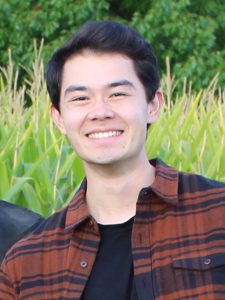Cleveland, Ohio – On Tuesday, January 30, 2024, Dr. Dan Savage from Los Alamos National Laboratory (LANL) visted CWRU to give a colloquium titled The Microstructure Based Approach to Understanding Material Propertiess. See the abstract and Dr. Savage’s bio below for more information.
Abstract:
Understanding materials from the basic building blocks of matter can enable predictive modeling leading to accelerated material certification, engineering design improvement, nimble manufacturing practices, and physical understanding of materials in extremes. Unfortunately, bridging all the length scales has proven challenging, even for simple material systems, and a highly coupled modeling and experimental approach is often required to realize predictive toolsets. The mesoscale microstructure description of a material has proven especially useful for modeling many engineering material properties since defects such as dislocations can be represented as a continuum and the ordering of atoms which form grains in a polycrystal are responsible for effective properties. In addition, the mesoscale can also be easily characterized experimentally. In this talk, a mesoscale model of high purity titanium will be presented with a focus on understanding the link between microstructure and properties (i.e. plastic behavior). A common theme will be how evolving characterization capabilities (e.g. diffraction methods) and computational methods (e.g. Bayesian optimization and optimal exploration of parameter spaces) are changing how experiments and models are integrated.
Bio:
Dan Savage is a staff scientist in the Materials Science and Technology Division at Los Alamos National Laboratory (LANL) where he is part of the neutron and X-ray scattering team. During his recent postdoc at LANL he was a G.T. Seaborg Institute Postdoctoral Fellow, working to predictively understand microstructure evolution in shape memory alloys and understand shock induced phase transformations using femtosecond X-ray diffraction. Prior to joining LANL in the fall of 2020, Dan was an NSF Graduate Fellow and received his PhD in Mechanical Engineering from the University of New Hampshire where his focus was in crystal and continuum descriptions of plasticity and ductile damage. His current research is centered around microstructure-based understanding of materials and developing applications of optimization, uncertainty quantification, and physics-based modeling in diffraction analysis.

Leave a Reply
You must be logged in to post a comment.